Providers Who Care for People With Disabilities Deserve a Raise
This letter was originally published in the Syracuse Post-Standard. It has been adapted with permission from letter-writer Barbara Davis, a member of The Arc’s National Sibling Council.
I am the sister and legal guardian of a sibling with an intellectual or developmental disability (IDD). She resides in Onondaga County in New York and receives services from The Arc of Onondaga. I live in Virginia and have been her long-distance advocate and guardian for the past 20 years, since our parents passed away. I would like to share with you the support and care my family has been fortunate to receive from The Arc throughout my sister’s lifetime.
Our family pediatrician referred my parents to The Arc shortly after my sister was born in 1954, and I can’t imagine what her life (or ours) would have been like without the essential services The Arc provides.
From childhood well into adulthood, she attended The Arc’s Day Habilitation program, where she learned daily living and social skills, made friends, and enjoyed group activities. She bonded not only with other participants but also with dedicated staff, who encouraged her and supported her with respect and patience. To this day, a retired day habilitation staff member remains in touch and meets up with my sister and me when I am in town.
My sister lived at home with my parents until my father passed away and my mother was diagnosed with cancer. The Arc then assisted us in finding a residential placement. Before she died, my mother found great peace of mind knowing my sister would be living in a safe and supportive environment.
For the past 20 years, my sister has lived in a group home where she receives total care from direct support professionals. They provide meals, assist with such basic daily tasks as bathing and dressing, and provide transportation to doctor’s appointments. She also receives occupational therapy and physical therapy from The Arc. And the staff supports me by keeping me informed, helping me connect with my sister several times a week on FaceTime, and facilitating my in-person visits.
I cannot say enough about the dedication and hard work of the direct support professionals who have made such a difference in my sister’s life. At no time was this more apparent than during the COVID pandemic. When residents at my sister’s group home all came down with COVID, staff continued to show up every day to support and nurture the residents. Due to their wonderful care, all the residents recovered.
Without services and support from The Arc, my sister would have had a far more isolated life and fewer opportunities to develop her full potential. Instead, she is happy and sociable and “living her best life.” She loves her home and family at The Arc.
How To Help
Currently, chapters of The Arc and other nonprofit organizations that support people with IDD nationwide are experiencing a funding crisis. The amount that Medicaid reimburses these groups to pay dedicated direct support professionals is too low and not a livable wage. We need members of Congress, state legislatures, and governors to invest more resources in the essential services provided by The Arc and other nonprofits that support people with IDD and their families.
You can help by sending letters to your members of Congress and supporting your state chapter’s advocacy efforts.



 Debbi’s son Josh was born eight weeks early with a grade four brain hemorrhage. As she shares, “He was one of the sickest babies in the neonatal intensive care unit. It started our roller coaster of a journey of having a child with complex medical needs and disabilities.”
Debbi’s son Josh was born eight weeks early with a grade four brain hemorrhage. As she shares, “He was one of the sickest babies in the neonatal intensive care unit. It started our roller coaster of a journey of having a child with complex medical needs and disabilities.” Out of crisis came purpose. Debbi soon immersed her family in The Arc’s chapter support systems, connecting her sons to sibling workshops and herself to a parent networking group. “We still count on those relationships for support today,” added Debbi.
Out of crisis came purpose. Debbi soon immersed her family in The Arc’s chapter support systems, connecting her sons to sibling workshops and herself to a parent networking group. “We still count on those relationships for support today,” added Debbi. Once The Arc of the United States got word of Debbi’s powerhouse advocacy, we invited her to apply for the Board. Her proudest volunteer moments have been spearheading the creation of The Arc’s
Once The Arc of the United States got word of Debbi’s powerhouse advocacy, we invited her to apply for the Board. Her proudest volunteer moments have been spearheading the creation of The Arc’s 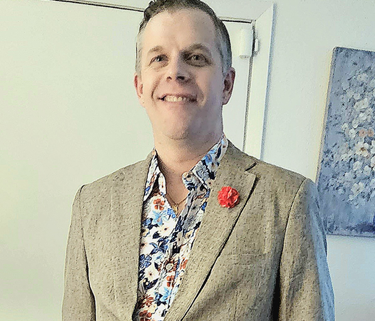
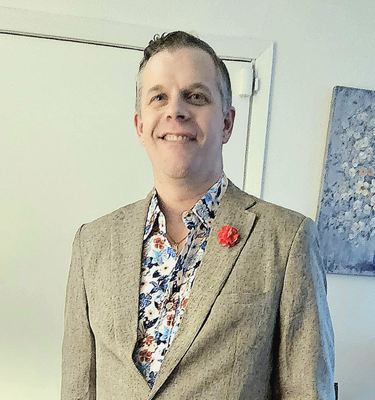 Working with people with disabilities is Lawrence’s long-time passion. He has worked as a direct support professional (DSP) in New York and Texas, both before and after serving in the Army. As a DSP, Lawrence takes pride in the trusted role he has in the lives of people with disabilities. He helps transport people to and from appointments, gives medicine, cooks, cleans, dresses, changes, and feeds people who may not be able to do these things for themselves. He even seeks out specialized training that is needed to support people who have challenging behaviors that may result in injury to themselves and others.
Working with people with disabilities is Lawrence’s long-time passion. He has worked as a direct support professional (DSP) in New York and Texas, both before and after serving in the Army. As a DSP, Lawrence takes pride in the trusted role he has in the lives of people with disabilities. He helps transport people to and from appointments, gives medicine, cooks, cleans, dresses, changes, and feeds people who may not be able to do these things for themselves. He even seeks out specialized training that is needed to support people who have challenging behaviors that may result in injury to themselves and others.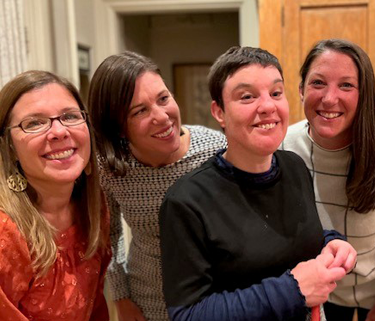
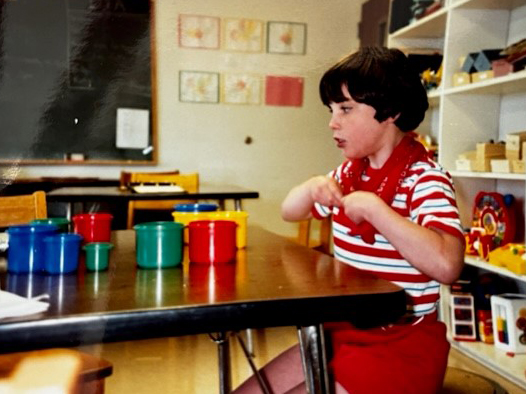 Julia started attending a pre-school run by United Cerebral Palsy, where they received a flyer for a family event hosted by AHRC New York City. The whole family spent a Saturday afternoon connecting with other parents, siblings, and children with disabilities.
Julia started attending a pre-school run by United Cerebral Palsy, where they received a flyer for a family event hosted by AHRC New York City. The whole family spent a Saturday afternoon connecting with other parents, siblings, and children with disabilities.
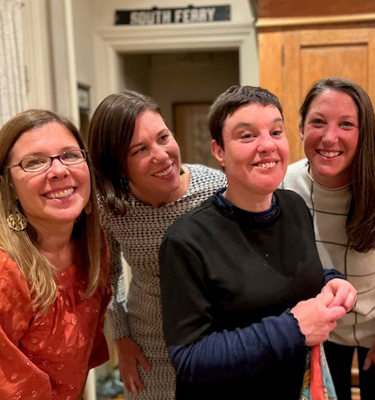

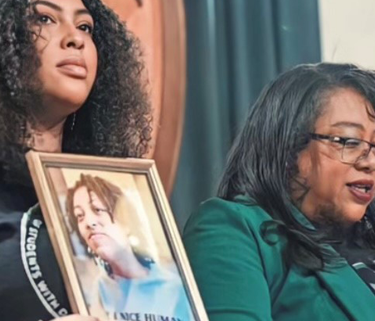
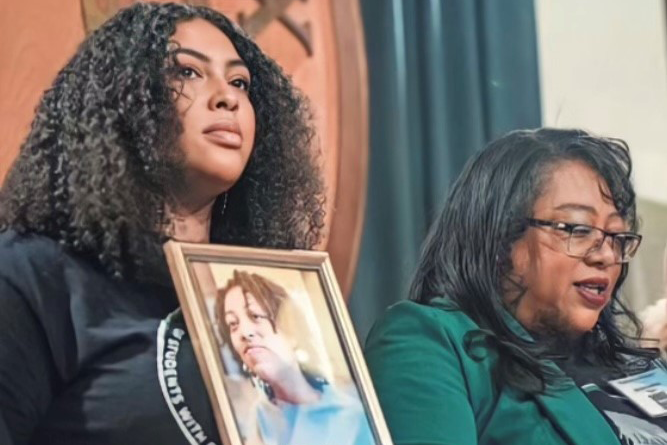


 Betty has always had the innate ability to create a safe space for disabled people. As a child, she would talk to them in the grocery store, at church, and on the street. At the age of 18, she found herself running a daycare center and was drawn to do more for the disabled children who came through her doors. She enrolled in disability studies at Santa Fe College, which was right across the street from The Arc of Alachua County. Upon graduating, The Arc of Alachua County immediately hired her as a DSP. That was 20 years ago, and Betty has never looked back.
Betty has always had the innate ability to create a safe space for disabled people. As a child, she would talk to them in the grocery store, at church, and on the street. At the age of 18, she found herself running a daycare center and was drawn to do more for the disabled children who came through her doors. She enrolled in disability studies at Santa Fe College, which was right across the street from The Arc of Alachua County. Upon graduating, The Arc of Alachua County immediately hired her as a DSP. That was 20 years ago, and Betty has never looked back. role of DSPs, chronic underinvestment in Medicaid’s home and community-based services has led to paltry wages and training, which has created a nationwide shortage of workers. As Betty says, “Spend a day in our shoes. It might seem like what we do is easy, but it’s not. There’s no training, so I had to learn on the job, and there’s not enough staff. Sometimes, I have to work without a break, cover the next shift, or come in on weekends, but I don’t have a problem with that because I want my clients to be happy. Their families tell me all the time that if I wasn’t in their lives, they don’t know what they’d do or where they’d be.”
role of DSPs, chronic underinvestment in Medicaid’s home and community-based services has led to paltry wages and training, which has created a nationwide shortage of workers. As Betty says, “Spend a day in our shoes. It might seem like what we do is easy, but it’s not. There’s no training, so I had to learn on the job, and there’s not enough staff. Sometimes, I have to work without a break, cover the next shift, or come in on weekends, but I don’t have a problem with that because I want my clients to be happy. Their families tell me all the time that if I wasn’t in their lives, they don’t know what they’d do or where they’d be.”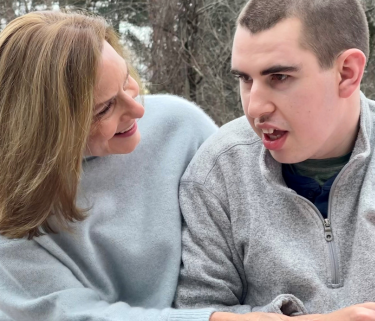
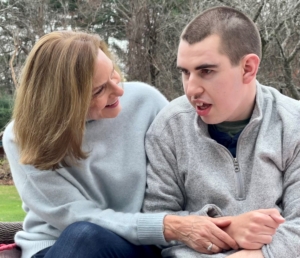 Barbara’s son Jake is a medically complex young adult living at home with his parents. Jake relies on Medicaid to provide the services he needs to be medically safe and supported at home, including continuous skilled nursing and personal care assistance (PCA).
Barbara’s son Jake is a medically complex young adult living at home with his parents. Jake relies on Medicaid to provide the services he needs to be medically safe and supported at home, including continuous skilled nursing and personal care assistance (PCA).





